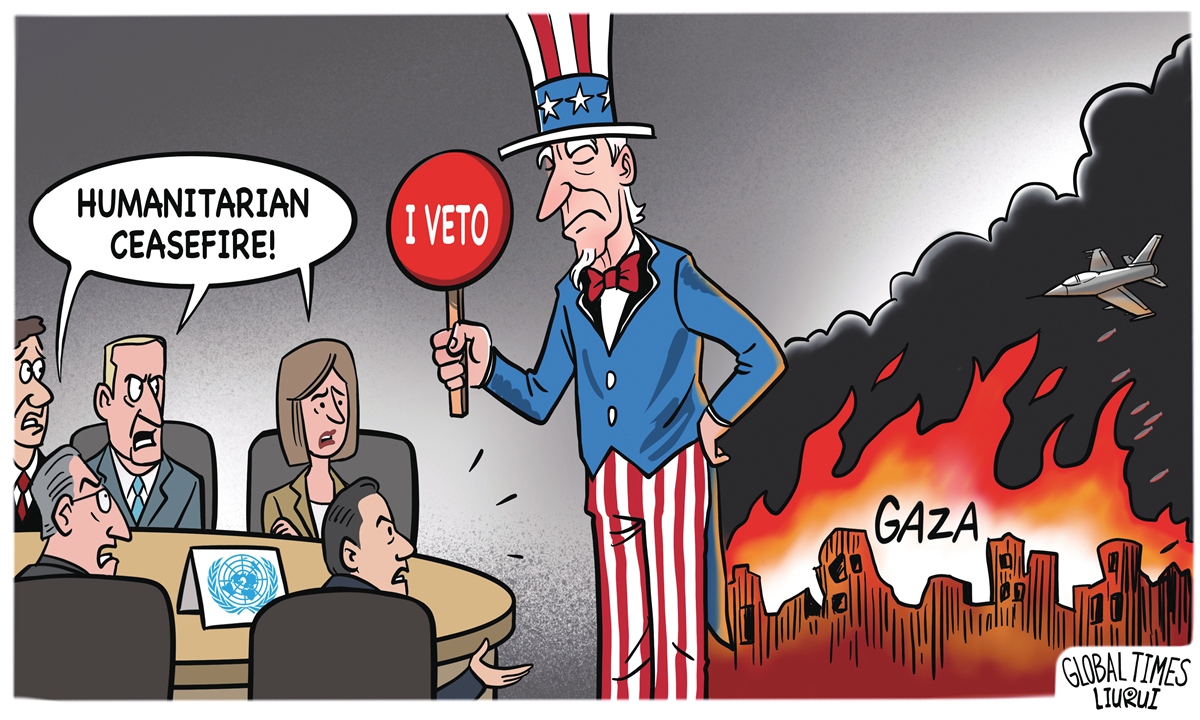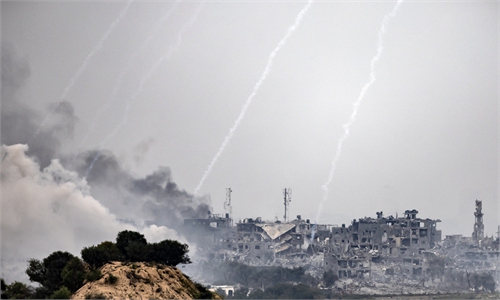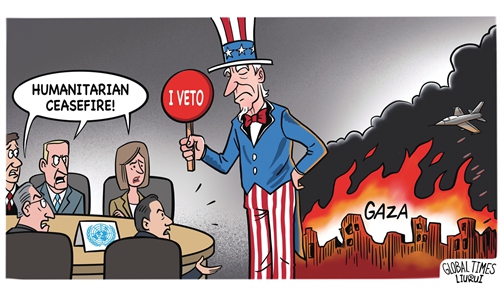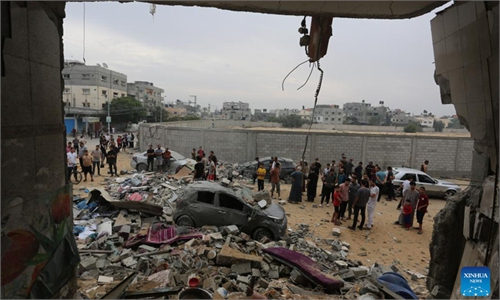
A ruthless stand. Illustration: Liu Rui/ GT
As Israeli Prime Minister Benjamin Netanyahu said on Saturday that Israel is now "heading into the second stage of the war," the Israeli troops expanded their ground operations in the Gaza Strip. The stepped-up attacks came despite a mounting international outcry for a "humanitarian pause" to allow aid in.The current ground operations have evidently resulted in excessive casualties, and with the situation in Gaza deteriorating further, a humanitarian disaster in the Gaza Strip is poised to escalate. Continuous casualties will only breed more hatred. Strategically, this is not merely a military test for Israel but also a test of wisdom. Excessive actions will cause Israel to lose the sympathy gained due to Hamas' attacks.
Likewise, for the US, this is not merely a military test, but also a test of conscience. This traditional conflict in the international arena has lasted half a century and is confined to a very small region. However, the current situation has turned into a humanitarian catastrophe. Militarily, this is an entirely unequal confrontation. One side is a state apparatus, the other side consists of civilians. If the US continues to support Israel in killings of innocent civilians, it will only make more countries realize that the US and Israel represent international hegemony and power politics.
Western countries also have internal divisions over the Israel-Palestine conflict. On Friday, the UNGA held an emergency special session and adopted a Gaza resolution with 120 votes in favor. Major European countries, including Spain, France, Germany, the UK, and Australia, either supported or abstained. Countries that truly support the US and Israel in taking the so-called self-defense military action are very few. The profound division in Western society reflects the increasingly unpopular hegemonic actions of the US in the international community.
Recently, several US media outlets reported that "antisemitic comments" have increased across Chinese social media, claiming that China might see the spread of antisemitic sentiment as well as hostility toward the US over the conflict as "geopolitically useful." US media, in pursuit of their own interests, have always been inclined to vilify China in any matter, and this instance is no exception.
In recent years, China has been actively engaged in mediating and resolving various regional conflicts, such as facilitating the Saudi Arabia-Iran agreement to restore ties. However, China's proactive advocacy for peace and participation in peace processes have made the US and a few other countries uneasy; they are unwilling to see China exerting influence in certain regions and fear the expansion of China's influence. Consequently, they attempt to undermine China's efforts and cast aspersions on the actions of the Chinese government.
The criticism of Israel's excessive use of force in Chinese public opinion is primarily based on morality. However, some Western media outlets have labeled the Chinese internet discourse as "antisemitic," which is clearly an unjust accusation. There is absolutely no foundation for the formation of "antisemitism" as an ideology in China. China prioritizes regional peace and opposes the slaughter of civilians by a state apparatus. The mainstream voices on Chinese internet platforms echo this sentiment.
Chinese law explicitly prohibits the dissemination of extremist, hateful, and violence-inciting content on the internet. The Chinese people possess discerning judgment. They're able to differentiate between right and wrong, and distinguish those who advocate for peace and justice from those who represent war and malevolence. Actions that violate international law, humanitarian laws, and result in significant humanitarian crises are not just opposed by the Chinese populace but also by all fair-minded people around the world.



